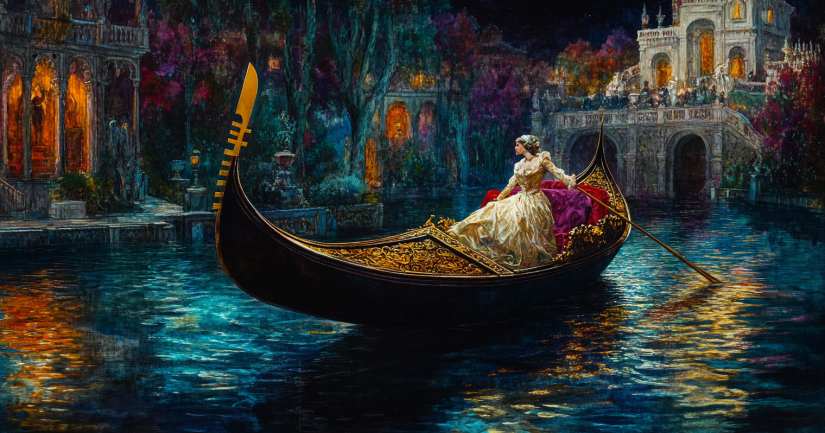
Delve into the secrets and fortunes woven through Venice in our Merchant Of Venice Act 2 Quiz. Welcome to the Merchant of Venice Act 2 Quiz. Here, you will unravel the tapestry of Shakespeare’s timeless play. This quiz invites you to explore the vivid world of Antonio, Shylock, and Portia. Each question will challenge your understanding and enrich your appreciation of this literary masterpiece.
In Act 2, characters reveal their true colors. Shylock’s daughter, Jessica, faces a life-altering choice. Portia, meanwhile, is caught in a web of suitors. As you delve into these intricacies, you will better grasp themes of love, betrayal, and justice. Each answer uncovers new layers of meaning and insight.
Act 2 deepens the intrigue, but can you follow the story as it escalates? Put your knowledge to the test with the Merchant Of Venice Act 3 Quiz. If you need a refresher on the foundations, revisit the Merchant Of Venice Act 1 Quiz. And when you’re confident in your understanding, challenge yourself with the Merchant Of Venice Full Book Quiz to see if you truly know the play inside and out.
This quiz will spark your curiosity and deepen your engagement with the text. Whether you’re a seasoned scholar or a curious newcomer, you’ll find value here. So, prepare to test your knowledge and discover the hidden gems within this Shakespearean classic. Let the journey begin, and may the wisdom of Venice guide you.
Merchant of Venice Quizzes – Will you get your pound of flesh?
What Happened – Merchant Of Venice Act 2
In Act 2 of The Merchant of Venice, several events unfold. First, the Prince of Morocco arrives in Venice. He wants to marry Portia. He must choose from three caskets: gold, silver, and lead. Each casket has a different meaning. If he chooses the right one, he can marry Portia.
Meanwhile, Launcelot Gobbo, a servant, decides to leave Shylock, the Jewish moneylender. He wants to work for Bassanio instead. He meets his father, Old Gobbo, who is nearly blind. Launcelot tricks his father for fun before revealing his identity. Bassanio agrees to hire Launcelot.
Jessica, Shylock’s daughter, plans to run away with Lorenzo, a Christian. She feels unhappy at home. She writes a letter to Lorenzo, telling him her plan. Lorenzo and his friends, including Gratiano, plan to help her escape during the night.
Shylock is invited to dinner with Bassanio. Before leaving, he instructs Jessica to guard the house. However, Jessica disguises herself as a boy and escapes with Lorenzo. She takes money and jewels with her.
The Prince of Morocco chooses the gold casket. He believes it holds Portia’s picture. However, he finds a skull and a note inside, saying he chose wrong. Disappointed, he leaves.
Bassanio prepares to go to Belmont to try his luck with the caskets. Gratiano asks to join him. Bassanio agrees but tells Gratiano to behave well.
These events set the stage for future developments in the play.
Merchant Of Venice Act 2 – Quotes
- “The devil can cite Scripture for his purpose.” – Antonio, ‘He warns Bassanio about Shylock’s deceitful nature.’
“All that glisters is not gold.” – Prince of Morocco, ‘He reflects on the deceptive nature of appearances after choosing the wrong casket.’
“I am a Jew. Hath not a Jew eyes?” – Shylock, ‘He argues for his humanity and against the discrimination he faces.’
“Mislike me not for my complexion.” – Prince of Morocco, ‘He pleads with Portia not to judge him by his skin color.’
“I will buy with you, sell with you, talk with you, walk with you, and so following; but I will not eat with you, drink with you, nor pray with you.” – Shylock, ‘He draws boundaries on his interactions with Christians.’
“The quality of mercy is not strain’d.” – Portia, ‘She speaks on the nature of mercy and justice during the trial.’
“Let me have judgment and the Jew his will.” – Antonio, ‘He resignedly accepts Shylock’s terms in court.’
“I think the best grace of wit will shortly turn into silence, and discourse grow commendable in none only but parrots.” – Gratiano, ‘He mocks the solemnity and pretentiousness of some people.’
“O, that estates, degrees, and offices were not derived corruptly, and that clear honor were purchased by the merit of the wearer!” – Bassanio, ‘He laments the corruption and lack of meritocracy in society.’
